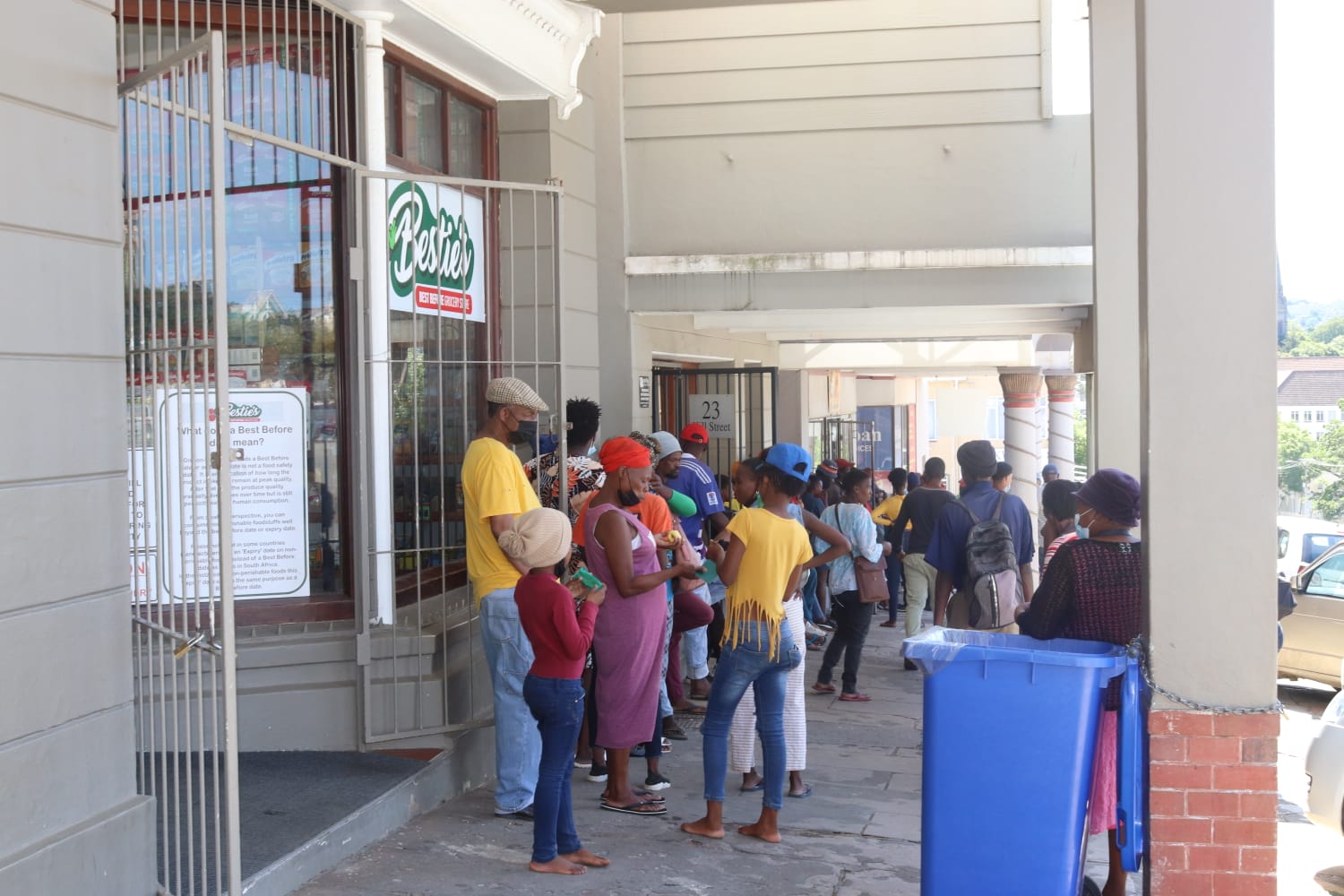By SIVE FAITH GINYA and MBASAKAZI MAKUBALO
The many Makhandans who brave the long queues outside the Post Office in Hill Street for the special R350-a-month COVID-19 grant say they are grateful for the assistance, but it falls well short of what they need to survive.
In February, President Cyril Ramaphosa announced a three-month extension of what is affectionately known as the ‘Sassa R350’ grant for unemployed adults who do not receive any social grant or unemployment insurance. This came as the COVID-19 pandemic continued to devastate the economy, entrenching extraordinarily high unemployment and poverty.
A single mother of an eight-year-old girl, who did not which to be named, said the grant assisted her with groceries and taxi fares, but it was not enough. She hoped it would be increased to at least R500 to cover her basic expenses.
Others said it was gruelling to have to wait in long queues with sore legs for ages for a small amount of money. Some are told there is no money left after queuing for an entire day.

For some, like Lembede Jantjie, an unemployed former Rhodes Univerisity student, the money was beneficial. He said he was blessed with a stable that supports him despite everything. However, he was concerned about other recipients who depended on the social relief grant as their only source of support.
Asisipho Nqowana, a Rhodes University student, was also grateful for the grant as her only source of income but said she did not know that it had been extended.
Some residents complained that they had yet to receive the grant up to four months after registering.
David Fryer, a senior lecturer in the Economics Department at Rhodes University, said social grants were necessary due to record levels of unemployment.
The statistics agency reported that South Africa’s unemployment rate rose to a new record high of 35.3% in the fourth quarter of 2021 from 34.9% in the third quarter due to job losses, mainly in manufacturing and construction.
According to an expanded definition of unemployment that includes those discouraged from seeking work, 46.2% of the labour force was without work in the fourth quarter, from 46.6% in the third quarter.
“We obviously need those grants as people literally have nothing,” he said.
He said introducing a permanent Basic Income Grant, not temporary relief, is necessary. It would be best for it to be unconditional as it is difficult for one to prove their unemployment status.


